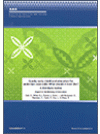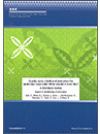Recent years have seen increasing participation of under-two-year-olds in early childhood education. This literature review draws together relevant research evidence to better understand what quality early childhood education for children under-two-years of age should look like.
Purpose
In keeping with trends, this report does not re-litigate whether or not under-two-year-old children should be in centre-based ECS. Instead, it addresses three key questions in accord with the Ministry focus:
- What does research evidence suggest about what quality early childhood education for under-two-year-olds should ‘look like’? What are the features or dimensions of quality? How should these vary according to the age of the child and other key factors?
- To what degree does the current provision of early childhood education in New Zealand for under-two-year-olds reflect what is known from research evidence about the features/dimensions of quality for this group? What can support as close an alignment as possible to these features in the future?
- What do we know about the capacity of ECE to improve outcomes for under-two-year-old children from low SES, Māori, Pacific or other backgrounds that include risk factors or vulnerabilities? What is meant by quality in these projects and what are the variables at play? What worked?
Methodology
The review methodology employed for accessing the research evidence in this report involved a systematic search for English-medium research published in the last ten years within the following databases: ERIC, PsychINFO, Ebsco and Academic Search premier. Academic journals were chosen that were known to highlight new knowledge with specific relevance to the key foci of the study. These are described as follows:
- the notion of quality early childhood education
- the effects of early childhood education on under-two-year-olds, including in relation to at-risk populations and with respect to dimensions of quality such as adult:child ratios, group size, staff qualifications and training, and professional development
- general child development research, in particular research seeking to apply new neurobiological knowledge to understanding human functioning in the very early years including relevant medical information
- reviews about quality early childhood education for under-twos
- research on pedagogy with under-two-year-olds
- policy commentaries about quality for under-two-year-olds in early childhood settings internationally.


